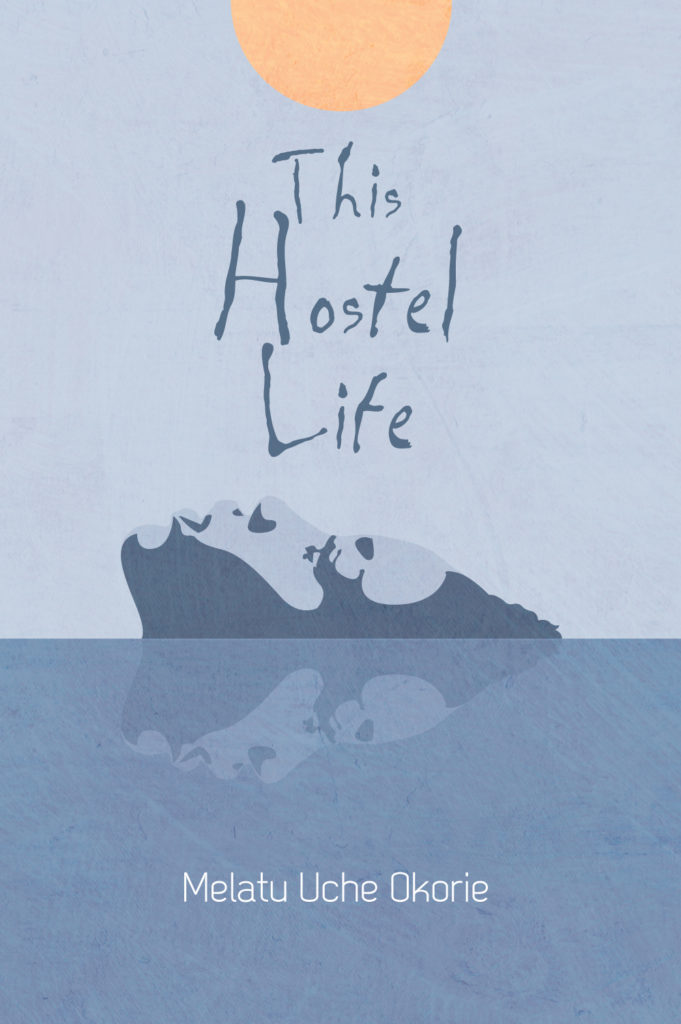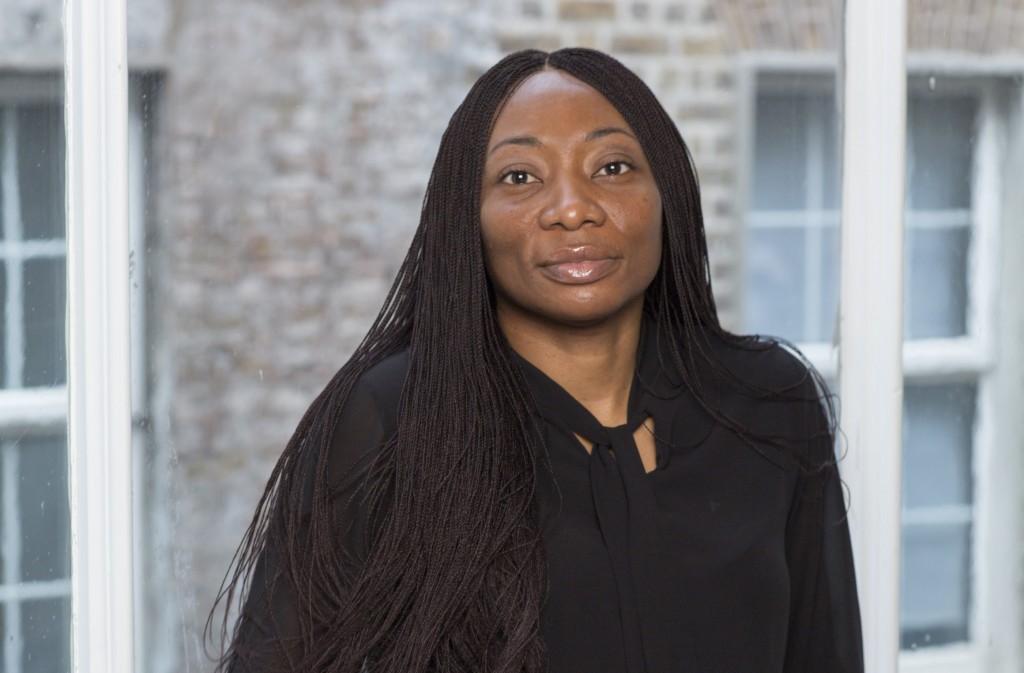“This Hostel Life” a book by Melatu Uche Okorie reveals how the structural racism and the immigration system work together in Ireland. Her writings helped to change the perceptions and the discussions about immigration and racial discrimination in the country positively.
by Juliana da Penha
When Melatu started to write, she was an asylum seeker, living in direct provision in Ireland. Today, she is finishing a PhD in Creative Writing for young children in Trinity College in Dublin. She is also a member of the Arts Council of Ireland.
“This Hostel Life” is Melatu first book. It features three short stories: “This hostel life” is about the experiences of people living in direct provision in Ireland. “Under the Awning” reveals the different faces of racism in Ireland and “The Egg Broke” is a story about an ancient Nigerian superstition about twins.
The book was published in 2018 by Skein Press, a new publisher in Ireland giving writers from ethnic minority background a platform to publish their books. Launched at the International Literature Festival, the book was nominated for the Sunday Independent Newcomer of the Year Award at the Irish Book Awards. In 2019 the book was adapted into an opera by the Irish National Opera.

Turning a difficult situation into an opportunity
Originally from Nigeria, Melatu arrived in Ireland in 2006. She reveals that while she lived and observed the difficulties of daily life under the Irish asylum system, she wrote these stories. And she never imagined, at that time, that she could go so far with her writings. In 2009 she won the Metro Éireann Writing Award for her story “Gathering Thoughts”. “I just start writing. I have always been a reader; I always enjoyed literature. I guess, at some point in life, I would come around to writing. I don’t have any idea how it started, but I suppose when you are in a place where there are time and nothing that much to occupy you, you look for things. Where there is not much to occupy you, creativity takes roots. I suppose it was the same for me”, explains Melatu.
Where there is not much to occupy you, creativity takes roots. I suppose it was the same for me
After 14 years of living in the country, she doesn’t feel the obligation to explain why she came to Ireland. A question that migrants are asking over and over again during their lives in a new country. “My journey is my prerogative. I don’t have to make somebody else understand why I had to leave my country and why I am where I am. It’s my prerogative; it’s my story. I have freedom as a human being to move around; it is a human right. I don’t need to explain it. We live in a world where we have almost to sell our story, all the time, for people to sympathize or understand. Why do I need to explain myself? This is a free world, and we are all free to move around, whatever the decision to do that is.”, said Melatu.
Melatu used the fiction to tell real stories about who live “under almost tyrannic conditions” as to how she described some of the facets of direct provision in Ireland. She shows the struggles of asylum seekers in Ireland. And also, how structural racism and immigration system work together creating oppression. “Not only in direct provision, but what you experience as a black person, it’s horrific how you are in a different position. And you suddenly realize how bad do they [Irish] think of you and all the suspicious that come instantly at your face.
If someone tells a story about me, and a story of someone who is Irish, if the story about me is negative, instantly it will be believed. If it is a positive story, they will want to reproof it – “she can’t be that smart, she can’t be that intelligent”, and so one.
If it is a negative story, nobody tries to counteract that negative story. If it is a positive story, there is so much effort to counteract that positivity, and you wonder, why is that? I think sometimes it is heart-breaking realizing that. I believe it is the mindset of things.”, explain Melatu.
Not only in direct provision, but what you experience as a black person, it’s horrific how you are in a different position.
Direct Provision is a system set up by the Irish government in 1999 as an emergency measure to house people seeking asylum while their application is assessed by the authorities. Most of these accommodations are former hotels, B&B but there are also caravan parks. The system initially was mean to take up to six months. Still, Melatu, for example, lived in Direct Provision for eight years. Under this system, asylum seekers have a place to sleep, food and a small weekly allowance. And since last year some people are permitted to work. However, the conditions of these accommodations were under the scrutiny of Human Rights organizations. Also, the impact on the uncertainty of their own lives, not being able to decide and to provide for themselves and their children creates a significant adverse effect on the mental health of asylum seekers. The isolation of these communities creates social and racial tensions in Ireland.

Migrant women Sisterhood
Melatu also discusses specific issues that women face. As an example, the difficulties of parenting alone. She also says there are various abuses women can meet, mostly migrant and asylum seeker women. Many of them are alone in a new country, without family support. She is a former board member of AKIDWA – a national network of migrant women living in Ireland. And she believes that sisterhood is something essential and it should be present between women, especially between migrant women.
“There is a tendency for women to be easy prey, and this is something we need to watch out for. As migrant women, we tend to be very afraid to say what’s going on here. We need to push away that fear. We need to speak to each other: “Sista come! What’s happening to you?” We need to be able to use our voice. I think as migrant women it’s very important that we come together in a meaningful way to support each other. We need to look after each other. We need to have each other’s back.”, advise Melatu.
After raising the voices of asylum seekers with her book, Melatu contributed to a constructive discussion about migration in Ireland. And she believes there are some changes “People are talking about immigration. This year, in February, there was an election here in Ireland. I think for the first time, for me as someone who has living in Ireland for 14 years, it was the first election that immigrants were not being blamed. Most of the politicians were discussing issues that affected everyone. So, for the first time, I was comfortable to sit and listen to the debates and be comfortable listening to them, knowing that these people were arguing for me, for my child, for people like myself.
It was something that happened this year and contributed to the discussion around migration. I am happy with that. I remember coming at every election in the past, always with this sense of trepidation. And this was because there was still this negative news about immigrants and all that. There was always a politician using immigration to score, to go up on the voting pole. For the first time, I felt like everybody else listening and making decisions. For me, this is a great thing. I think this is also that we have to aim for.”
I think as a migrant woman it’s very important that we come together in a meaningful way to support each other.
Melatu says she is inspired by different women writers like Chimamanda Ngozi Adichie. She is happy that in migrant literature, before a male-dominated field, now we can see many women coming with their books. Finally, she expresses her gratitude to writing “I started writing when I was in direct provision. It is something that I hope to continue doing. It’s a way of navigating things and making sense of things as well. Writing touches you in many ways. When you are writing, you are learning something every day, makes you research things, makes you find things, makes you read some more, there are always positive things that come from writing.”

The book is available from bookshops and from www.skeinpress.com
